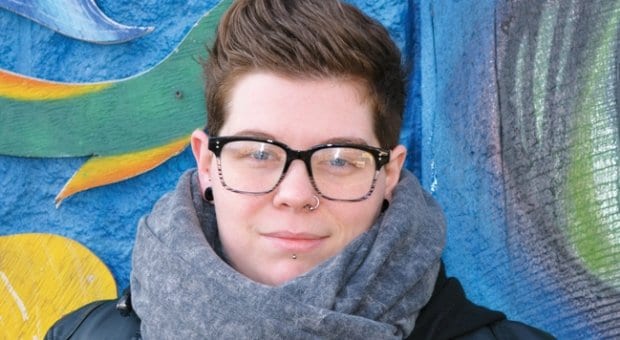April 6:
The Carleton University Students’ Association (CUSA) and promotion company Urban Jamz Entertainment announced late Friday that Rick Ross’s April 9 concert is cancelled.
“Due to the protest surrounding Rick Ross latest song UOENO, the concert Pandemonium scheduled (April 9), is now officially cancelled because of security concerns,” Urban Jamz wrote.
Former CUSA councillor Dillon Black says CUSA and Urban Jamz are looking for a scapegoat by citing “security concerns” as the reason for the concert’s cancellation.
CUSA should acknowledge that community members who felt Ross’s lyrics promote rape culture pressured the organizations, Black says, adding that the statement by Urban Jamz skirts accountability.
“Despite CUSA not mentioning the fact that it was cancelled due to concerned community members and rape culture, we are pleased that the concert has finally been cancelled. This proves an amazing community and campus effort challenging rape culture,” Black says.
CUSA says it will plan an alternate event.
April 5:
A queer Carleton University Students’ Association (CUSA) councillor has quit over CUSA’s funding of an upcoming concert by rapper Rick Ross, whose critics say he glorifies rape.
Ross appears on a track by Rocko titled UOENO, or You Ain’t Even Know It, and raps the lyrics “put molly in her champagne/she ain’t even know it/I took her home and I enjoyed that/she ain’t even know it.”
“Molly” is a slang term for MDMA, which is found in ecstasy.
Dillon Black (who prefers the gender-neutral pronoun they) says the song promotes rape culture. Although Black had only months left to serve as a CUSA councillor, they decided to make a statement by quitting before their term expired.
“For me it was coming to the realization that CUSA wasn’t really a vehicle for making change,” Black explains. “The council itself and the executive . . . [are] very avoidant on student issues.”
Committed to combating violence against women, Black is concerned about the prevalence of sexual assault on campus.
“Twenty-five percent of university-aged women will experience sexual assault at some point in their university career,” Black says. “For me it was saying that the music that Rick Ross was endorsing and the lyrics help cultivate a culture where it makes it okay for sexual assault and rape to happen.”
CUSA president Alexander Golovko released a statement clarifying the association’s position on the concert March 28.
Golovko wrote that CUSA entered into an agreement with Urban Jamz Entertainment to purchase a bulk amount of tickets in January. UOENO was released in February.
“We would like to re-affirm our stance that we consider the lyrics in question to be repulsive and uncharacteristic of the views and beliefs of CUSA as an organization and its members. That being said, we are now in the process of looking into selling off the remainder of the tickets back to the organizers,” Golovko wrote. “This incident is regrettable and unpredictable.”
Although Urban Jamz requested that Ross refrain from singing the song at the concert, Black says the statement lacks accountability.
“It was a very blank statement. It didn’t really mean anything to people who were involved in trying to get them to cancel or even acknowledge that it was really problem,” Black says.
As of April 4, CUSA was still selling tickets to the concert.
Black also points out that Urban Jamz founder, Obed Okyere, is a past president of CUSA.
“Obviously, there is the funnelling of CUSA funds to their friends who are involved in the same kind of issues on campus. That’s been causing a lot of concern,” Black says.
Urban Jamz’s website does not list a phone number. There was no response to an email request for an interview.
For his part, Ross apologized for the lyric on Twitter, writing, “I don’t condone rape. Apologies for the #lyric interpreted as rape. #BOSS”
While this tweet was met with many negative replies, including links to a petition imploring Reebok to drop the singer as a spokesperson, some Ross supporters say the lyric is simply exercising free speech.
The administrative coordinator of Carleton’s GLBTQ Centre, Edward Ndopu, disagrees with this argument.
“One has to notate free speech within a broader context of oppression and systems of power. I don’t think speech occurs in a vacuum,” he says.
Micheal Vonn, policy director at the BC Civil Liberties Association, says Ross has the right to rap about rape, and Carleton students have the right to voice their displeasure with the contents of his music.
“The question is should the state be allowed to decide what people are allowed to hear, and we say obviously not; that’s censorship,” she says.
Students questioning where CUSA spends their funds are also within their rights, Vonn says.
“That’s a standard part of political speech: asking your representatives to be accountable in terms of the choices that they make.”
Ross may now have more pressing issues to address than a debate over his lyrics.
On Jan 28, he was the target of a shooting in Miami. Although he escaped unharmed after crashing his car, The Huffington Post reported April 4 that police say Ross was carrying a .9 mm Smith and Wesson and his concealed weapon permit had expired.
Representatives at Ross’s booking agency, Heavy Rotation, would not say whether this news would affect the artist’s appearance in Ottawa.
Maybach Music Group, Ross’s management company, did not respond to a request for comment.
Former Carleton student Kira-Lynn Ferderber, who holds a degree in women’s studies and human rights, created a Facebook page March 25 criticizing CUSA’s funding of the concert. Ferderber’s supporters plan a peaceful protest outside the concert.


 Why you can trust Xtra
Why you can trust Xtra


